Freedom House found the Nagorno-Karabakh region, long contested between Armenia and Azerbaijan until the latter seized it by military force in September 2023 and ethnically cleansed its Christian Armenian residents, to be the most unfree place on Earth in its 2024 Freedom in the World Report.
Freedom House began with the gloomy observation that global freedom has declined once again, as it has during the previous 17 annual editions of its report.
“Political rights and civil liberties were diminished in 52 countries, while only 21 countries made improvements,” the report said.
Nowhere was that decline more pronounced than in Nagorno-Karabakh, the worst of many cases in which “violent conflict – often driven by authoritarian aggression, caused death and destruction and imperiled freedom”:
[Nagorno-Karabakh] suffered the year’s largest recorded decline in freedom and moved from Partly Free to Not Free after a blockade and military offensive by the Azerbaijani regime led to the capitulation of its separatist government and the de facto expulsion of its ethnic Armenian population.
Freedom House took 40 points off the region’s score after “nearly its entire population of 120,000 ethnic Armenians was forced to flee the enclave under intense pressure from Azerbaijan’s military.”
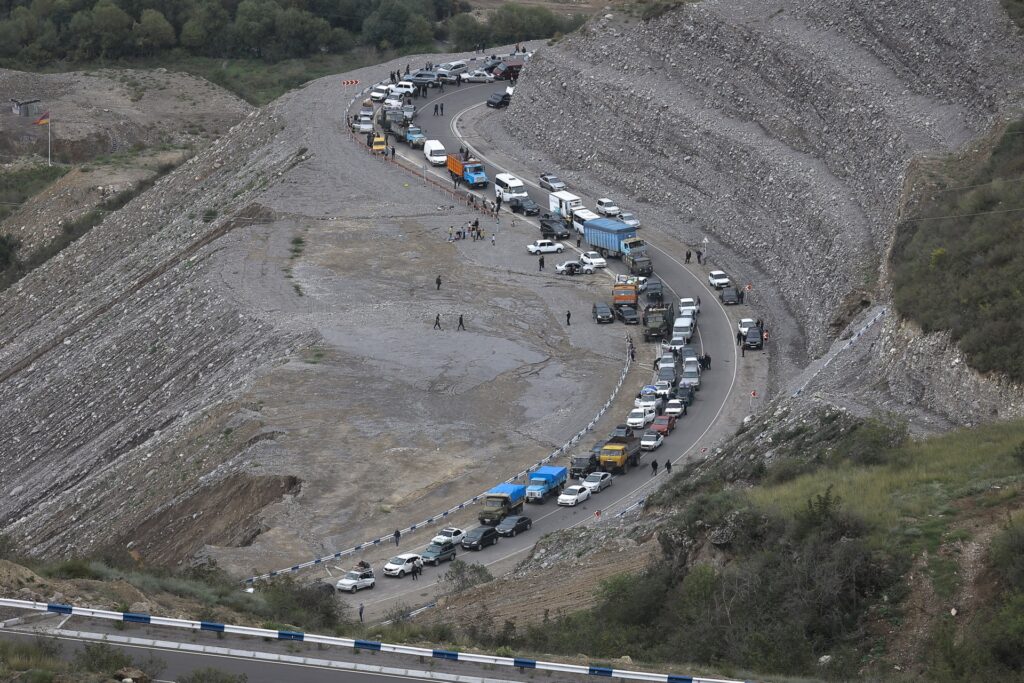
Ethnic Armenians flee Nagorno-Karabakh on September 26, 2023. (AP Photo/Vasily Krestyaninov, File)
Nagorno-Karabakh had a low freedom score on the 0-100 scale to begin with, so it was left with a net rating of negative three — lower than Tibet with ten and the only negative entry on the 2024 list. Only one country in the world had a larger decline over the past ten years: Nicaragua, suffering in the iron grip of socialist dictator Daniel Ortega.
The Azerbaijani invasion that caused such a “staggering” loss of freedom came after a nine-month blockade of the only land route connecting Nagorno-Karabakh to the outside world, so the Christian residents were already impoverished, sick, hungry, and low on fuel when the Muslim conquerors of Azerbaijan rolled in.
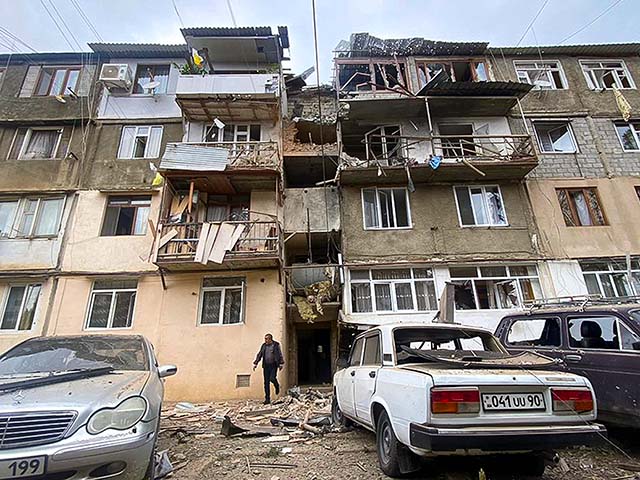
A damaged residential apartment building following shelling is seen in Stepanakert, Nagorno-Karabakh, on September 19, 2023. (AP Photo/Siranush Sargsyan)
Freedom House blamed Russia for selling itself as a peacekeeper after Azerbaijan won a skirmish over the region against Armenia in 2020 but then largely abandoning its self-proclaimed duties to fight President Vladimir Putin’s brutal war in Ukraine.
“In the end, there was little standing in the way of the Azerbaijani regime’s ambition to settle the decades-long dispute through a unilateral application of force,” the report lamented.
The invasion came after a pronounced “deepening of authoritarian repression within Azerbaijan,” which practices blatant ethnic and religious discrimination against Armenians.
Seizing Nagorno-Karabakh made dictatorial Azerbaijani ruler Ilham Aliyev even more powerful after more than 20 years in office and “raised fears that an emboldened Azerbaijani leadership could launch a full-scale invasion of the Republic of Armenia.”
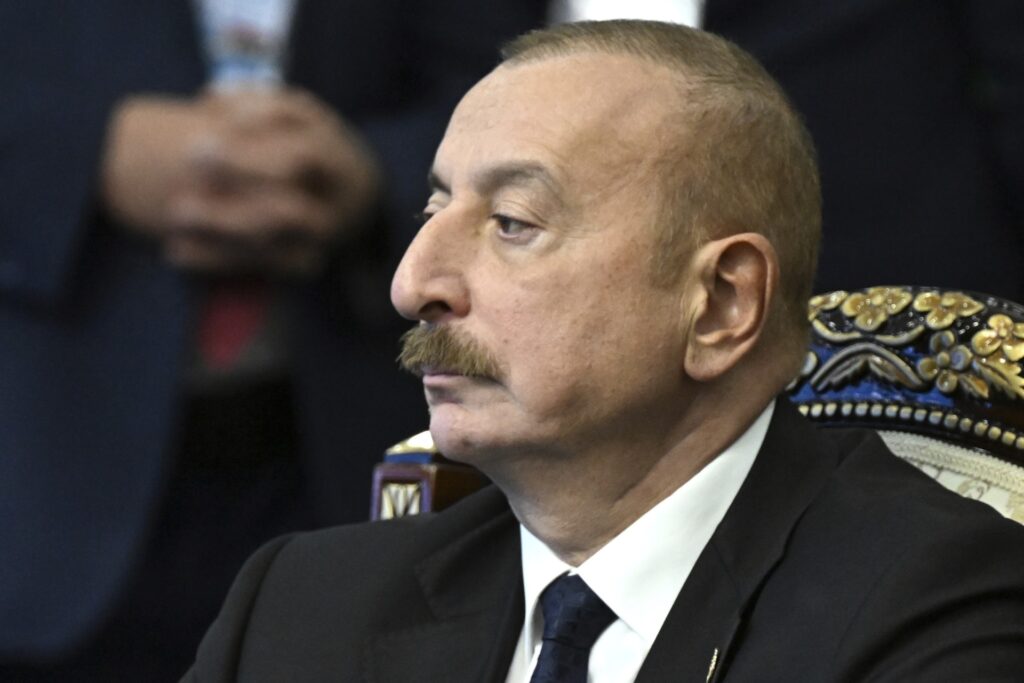
Azerbaijan President Ilham Aliyev (Pavel Bednyakov, Sputnik, Kremlin Pool Photo via AP)
Freedom House wryly noted that Aliyev only has to look north to Putin’s Russia for inspiration on how to manage a war of conquest and hopefully observed that Armenia will look north with a more jaundiced eye, finally ending its dependency on Putin’s authoritarian regime because it has seen that Moscow cannot be trusted.
The report noted that disputed territories tend to have appalling civil rights environments because they are almost invariably stripped of sovereign political rights — and once those are gone, every other right quickly follows. Hong Kong, Tibet, and the Gaza Strip were presented as two additional examples, while Nagorno-Karabakh no longer has legal or civic institutions at all following the Azerbaijani conquest.
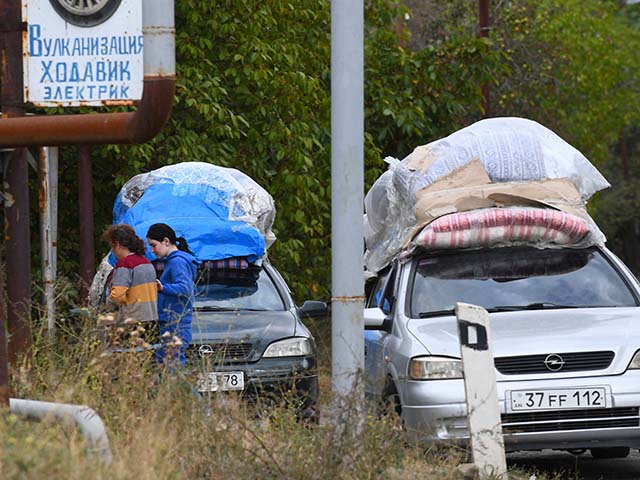
Ethnic Armenian refugees from Nagorno-Karabakh wait on the side of the road in the town of Vayk on October 2, 2023, ahead of their evacuation to various Armenian cities. (KAREN MINASYAN/AFP via Getty Images)
Freedom House suggested strengthening local civic institutions and human rights agencies in areas like Nagorno-Karabakh on the theory that “locally elected leaders, even in disputed territories, can help safeguard civil liberties and provide an accountable and constructive channel for addressing residents’ interests.”
It is difficult to imagine how any Armenian institution in Nagorno-Karabakh could have been made strong enough to survive the Azerbaijani conquest. Azerbaijanis who feel the Armenians displaced them in the 1990s have flooded back into the region, “reconstructing” towns and villages to their taste and taking over abandoned homes. The Aliyev government appears to be working to make the conquest irreversible by putting thousands of civilian shoes on the ground paved by military boots.
The Economist reported on Thursday that reconstruction in Nagorno-Karabakh has been a financial bonanza for Aliyev and his friends:
President Ilham Aliyev has pledged that 140,000 Azeris will return to the region by 2026. He is earmarking $2.4bn for reconstruction in 2024, more than a tenth of the country’s annual budget. Roads and railways as well as housing need rehabilitation, and the spending spree is bringing rewards for Mr Aliyev’s friends.
Allies of Azerbaijan, a bewildering spectrum including Hungary, Israel, Japan, Britain and Iran, have expressed interest in bidding. Turkish firms have been prioritized, in return for Ankara’s decisive military support in Karabakh over the past four years; by the end of 2023, Turkish firms had won $3.4bn in contracts.
“The Azerbaijan government says that Nagorno-Karabakh’s displaced Armenians can also return, but few are likely to accept; in October, Mr Aliyev was filmed trampling on their flag in their abandoned city. That’s not exactly an incentive,” the Economist dryly observed.
A member of that “bewildering spectrum” of allies is British Petroleum (BP), which human rights activists have criticized for remaining silent on Aliyev’s abuses to protect its $84 billion in Azerbaijan investments.
Washington-based activist group No Business with Genocide ranks BP’s operations in Azerbaijan alongside Volkswagen’s factory in Chinese-occupied East Turkistan and Bugari buying gems from the Myanmar junta as detestable examples of corporations acquiescing to ethnic cleansing and cultural genocide.
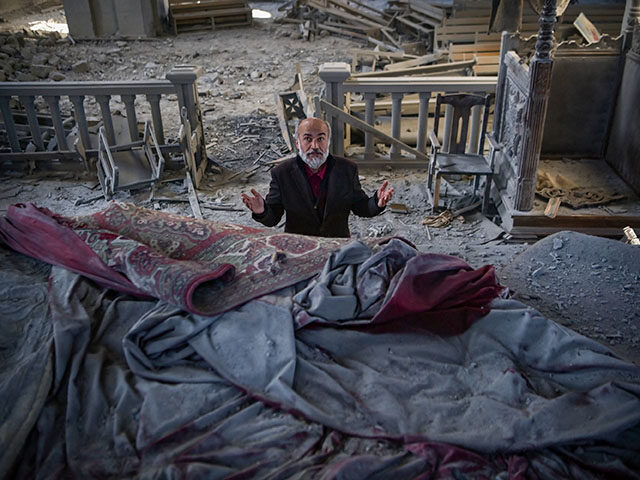
COMMENTS
Please let us know if you're having issues with commenting.